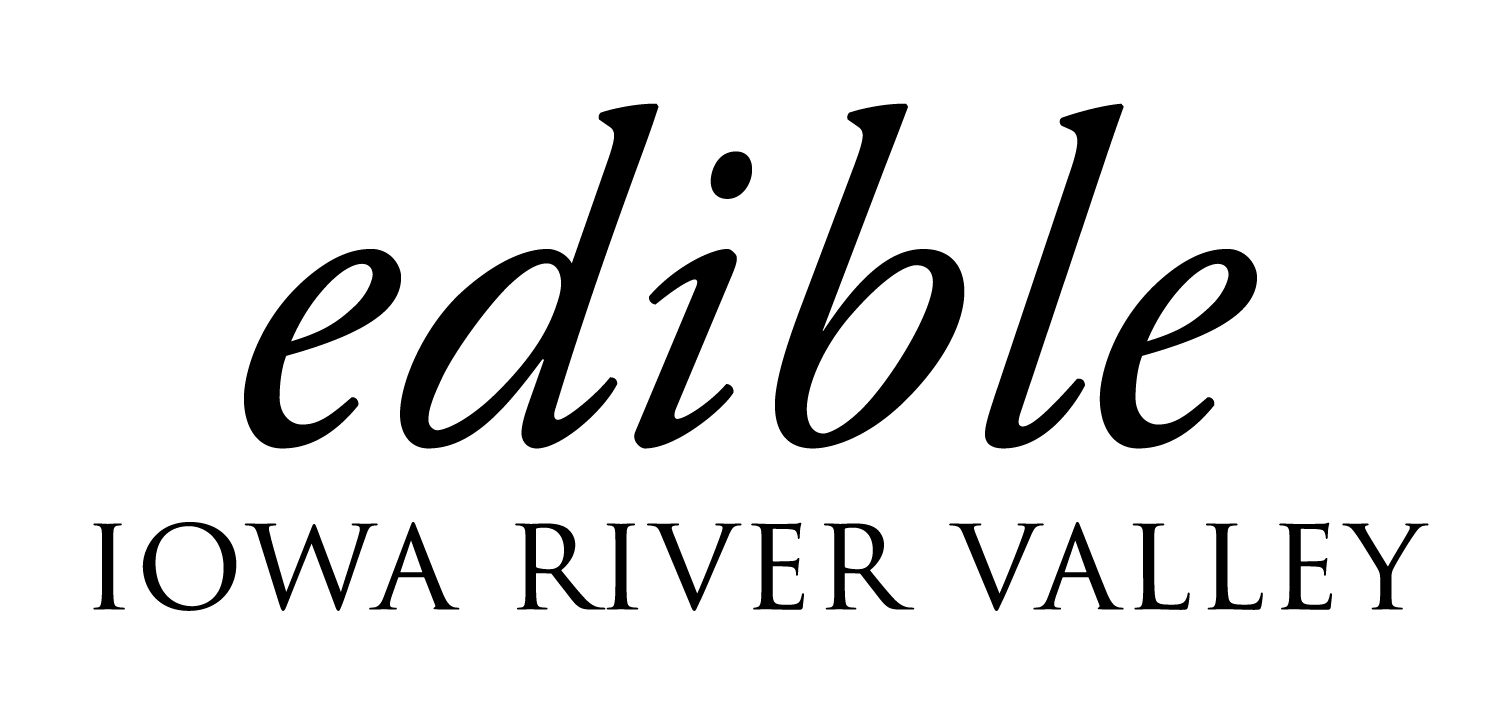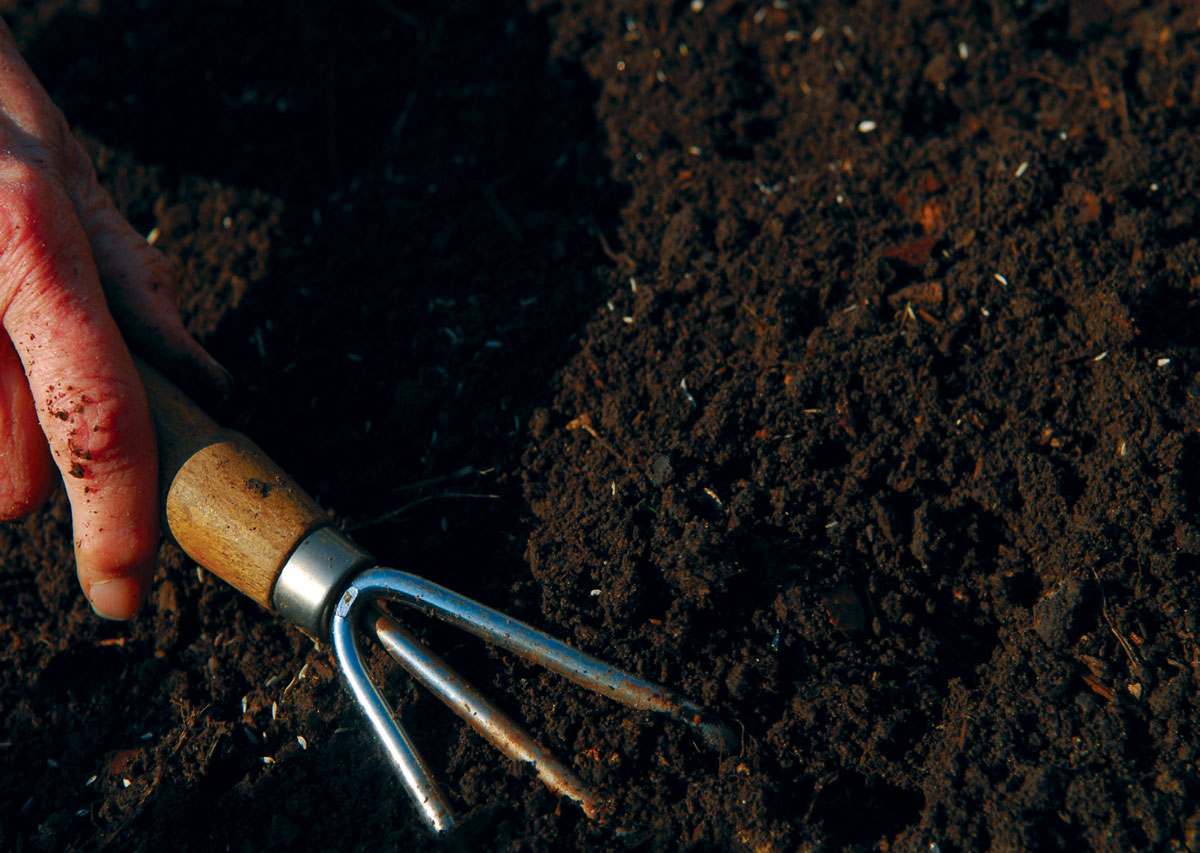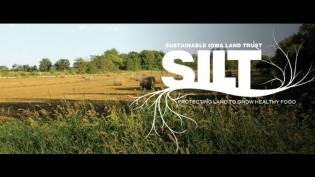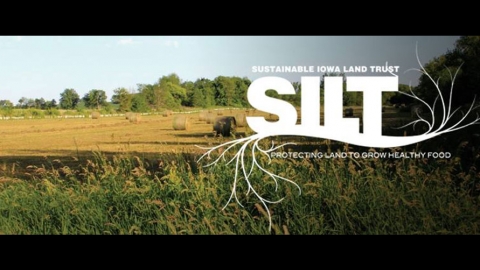Versaland: Grant Schultz and the Power of Permaculture
Grant Schultz and the Power of Permaculture
Grant Schultz is the farmer that inspired founder Suzan Erem to start SILT, an organization dedicated to helping farmers access land (see facing page). Schultz now operates VersaLand, a 145-acre farm, laboratory, and homestead in Iowa City, Iowa. VersaLand Farm is so innovative that it develops machinery alongside management systems, because most of the tools and equipment they need to implement thier systems don’t yet exist. VersaLand is both a functioning farm and living example of these new practices, as well as a place for farmers to come to learn.
In his own words, Schulz describes Versaland as “the conscious application of systems thinking to a diversified farm.” In other words Schultz is looking at each piece of land, how that land relates to neighboring farms and he is working with these farmers to find the most rational application of resources - time, capital, and biology - inside of an agricultural production system. There is not one answer to land management for farmers, though there are many great methods that can be applied to the whole. “Some people call the answer permaculture,” says Schultz, “but at the sheer scale at which we’re working, I call it Farmscale Permaculture.
VersaLand’s 145 acres of fruit trees, nut trees, vegetables, and multiple species of livestock grazing on natural pasture are closely planned to reduce soil erosion, and maximize long term yields. Schultz himself is an inspired, competent teacher whose passion for regenerative solutions make a great case for counting farmers among the “creative class” who are most often touted for driving the economy. With 90% of our food coming from out of state, the potential economic impact of Schultz’s ideas being widely embraced are huge.
Grant Schultz sat down with me on behalf of Edible Iowa River Valley to give us the 101 on VersaLand:
Katie Roche: How would you explain permaculture to someone who is a complete novice?
Grant Schultz: Permaculture is a design system that optimizes yields in a system with minimal inputs and maximum outputs. Example: Herb garden and chicken coop near the house, close to the kitchen where the food scraps then return to the chickens which produce eggs near the house and the manure feeds the herbs. A circular production system.
KR: What are a few simple things that people can do on their residential properties that you would recommend that are demonstrative of your practices?
GS: The biggest thing you can do at home is nutrient cycling. Compost kitchen waste out your back door. This will give you the best soil with no extra hauling or cost, and your trash gets taken out less often and effectively never smells. Win, yes?
KR: Talk a little about your involvement with the Ecopolis, the growing Iowa City movement, workng to create the first regenerative city of the arts, food, renewable energy, and commerce in the heartland. What role do you and VersaLand play in that vision?
GS: I could go anywhere in the world, literally, and I chose to move to Iowa City. We have the natural resources of soil and water - huge for me - and the diversity and brainpower of being a university town. After living here awhile, I realized we had a long way to go to live up to our potential, and the only way to achieve that was to get to work. Ecopolis is just that, citizens getting to work on making our everyday neighborhoods a better place to live.
KR: Technology is improving our ability to better manage land. What are a few ways that technology is incorporated into your teachings?
GS: I’m a big proponent of appropriate technology. That means right-size right-place technology. So yes, we use some cutting edge GPS technology that is literally accurate to under an inch from space. But, we also adapt machinery from one use to another, repurpose old tools, and design new things from scratch which we open-source on Farm- Hack.net.
KR: Could you talk a little about your education, expertise and how you landed in this role?
GS: My education has been a perfect storm of hard knocks. I grew up with bikes and lemonade stands, a proper start in mechanics and entrepreneurship. Working in hardware store in high school exposed me to all the bits and pieces that make the invisible infrastructure of everyday life operate - engines, plumbing, electrical, etc - and then I went off to Iowa State with a vague idea of learning about orchard crops.
I immediately had conflict with the dogma that was being poured down students throats at the time, particular in the College of Agriculture. Apply this, spray this chemical for that. It made one wonder how on earth people produced food on the best soil on the planet for millions of years if they didn’t first haul in phosphorous from overseas and inject nitrogen that was synthesized from natural gas from a thousand feet under the earth’s surface.
First, I embraced nature to start learning about biological cycles. Second, I realized the major hurdle to land access was financial resources. I come from a non-supportive family background, and I knew if I were to get on land I’d better get rich first. I ended up working for my landlord in property management while still in undergrad, and it paid the bills. Eight years later I was operating my own real estate brokerage and property management firm. I got tired of the grind and sold it to pursue my farm dreams. I never got rich, but I learned every single fine point of land, zoning, contracts, and the art of the deal.
KR: What is your vision for the future of farming?
GS: The only viable future we have is in transitioning production systems back into production cycles. VersaLand is creating a farm that circulates our resource base in a regional food system to feed our neighbors. That means do what you can with what you have, brainpower over fossil-power.
KR: Thank you Grant. Is there anything else you’d like to add?
GS: The whole point of this is to provide a brave model for the future as a direct comparison to mono-ag. A primary goal is community outreach, and we offer one workshop a year on Permaculture Design. That class is May 29th - June 7th 2015 in Iowa City. Learn more at Versaland.com






